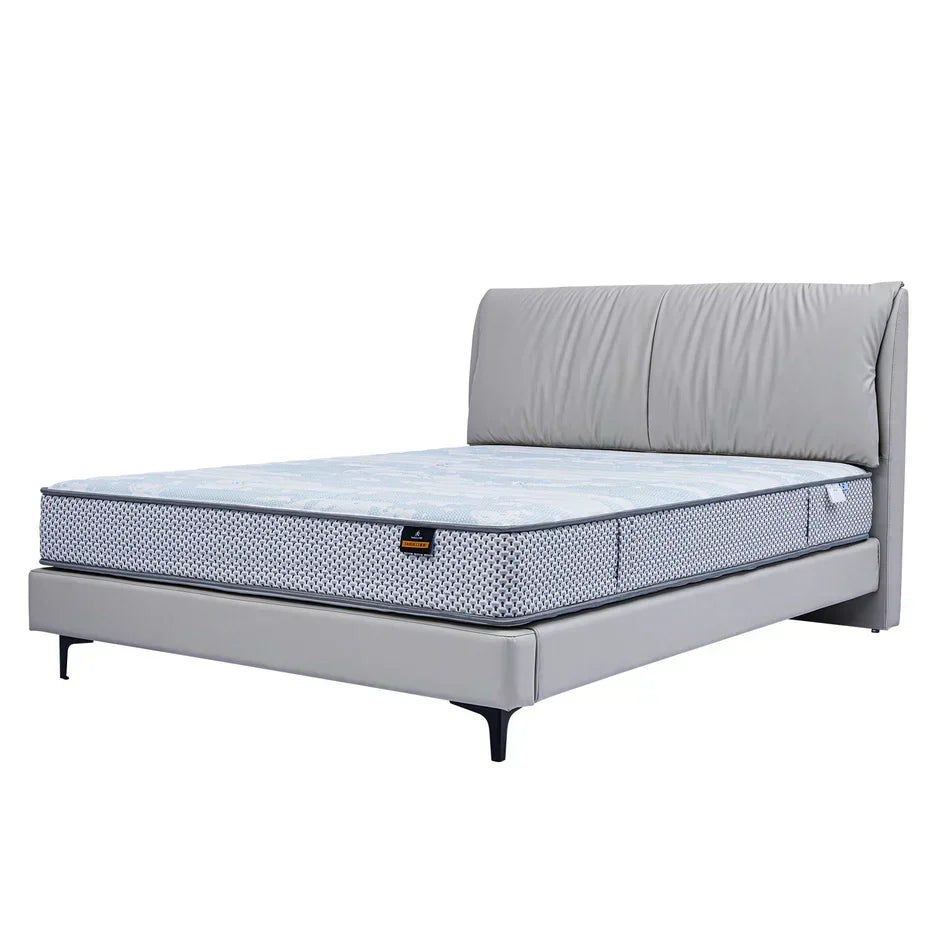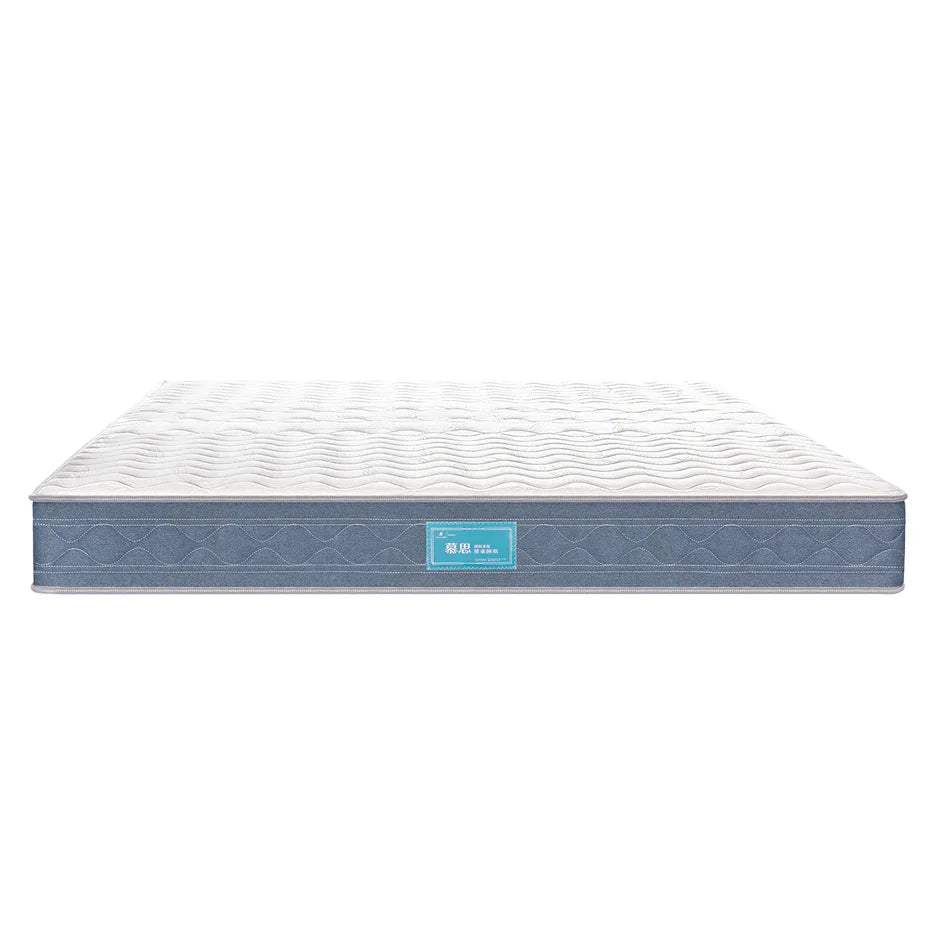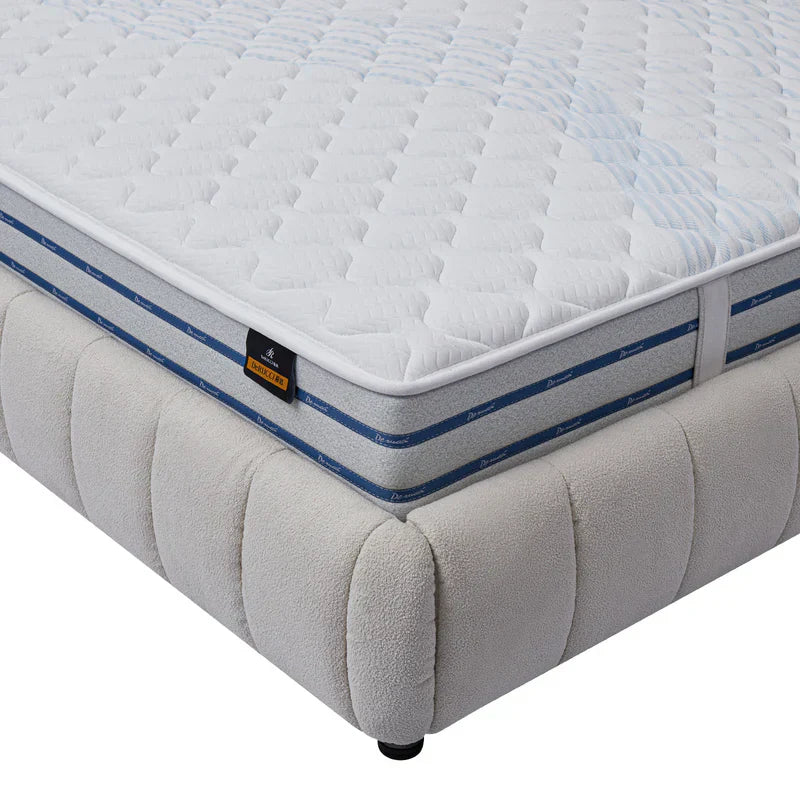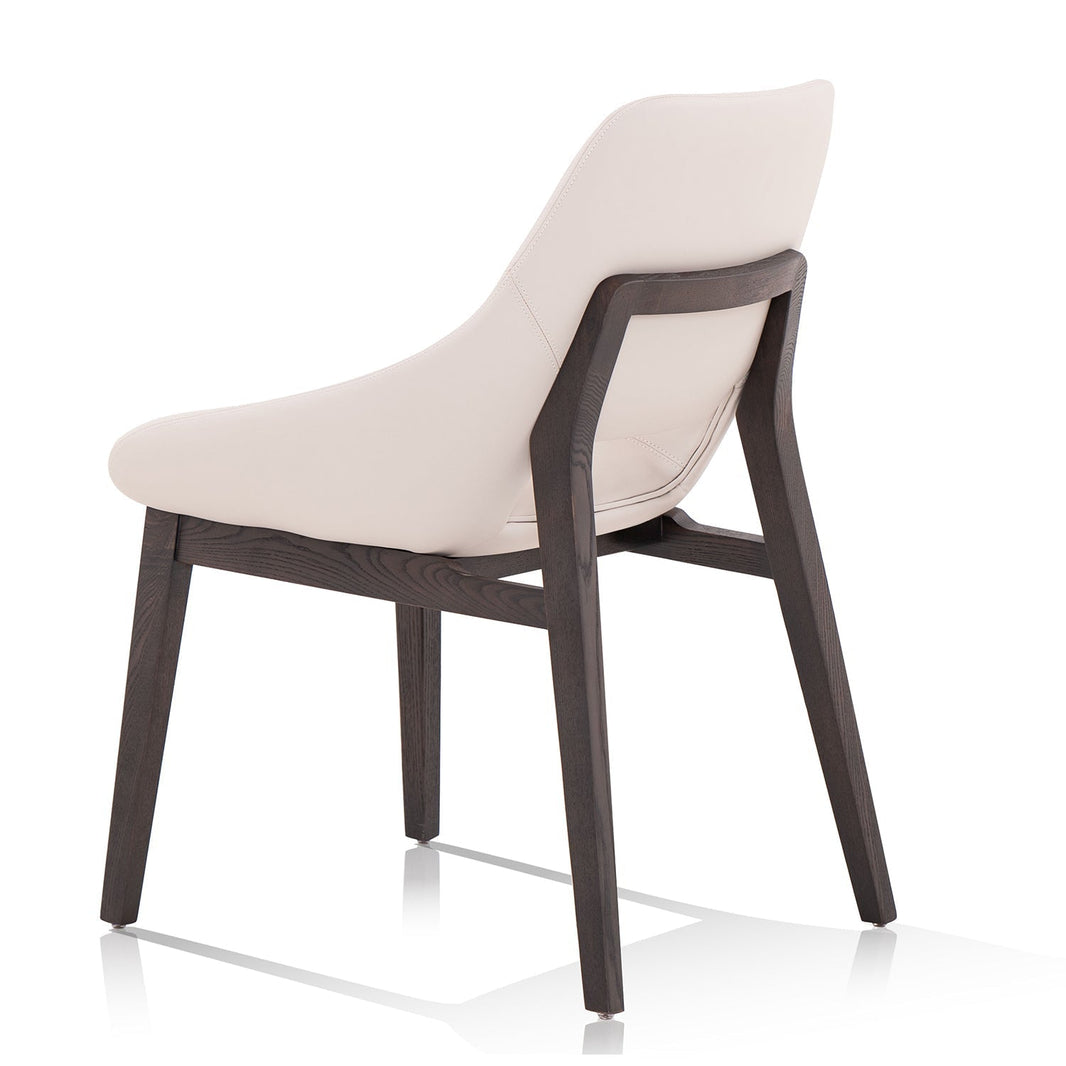A good night's sleep is crucial, yet we often forget what lies at the heart of it: our mattress. Much like a well-worn shoe, a mattress doesn’t last forever, and knowing when to replace it can make all the difference in how we feel each day. In this article, we'll walk you through five clear signs that signal your old mattress has done its duty and it's time for an upgrade. By recognizing these signs, you can ensure your sleep is more than just a break from the day—it's a nightly journey into comfort with a new, supportive mattress.
How Long Should a Mattress Last?
Every mattress has an expiration date, although not all types share the same lifespan. An innerspring mattress typically lasts around 5-7 years before it starts losing its supportive qualities. Memory foam and latex mattresses can offer comfort up to 10 years or slightly more, thanks to their durable materials. Hybrid mattresses, which combine innerspring with foam, have a similar lifespan to foam mattresses, averaging around 7-10 years of optimal use.
Several variables play a role in how long your mattress will last:
1. If you move around a lot in your sleep, it can wear out the mattress more quickly.
2. High-quality materials extend a mattress's life.
3. More weight and movement speed up a mattress's wear.
4. Frequent rotation and cleaning prolong a mattress's usability.

Indicator 1: Lack of Support Leading to Body Pain
When your mattress stops supporting you properly, it's a sign you need a new one.
- A good mattress should keep your spine lined up and spread out your weight to stop pressure points. That way, your muscles get a break overnight. If your mattress doesn't do this, you might toss and turn or wake up sore.
- If your mattress is old and saggy, or too soft, it won't hold up your spine right. You'll end up twisting and turning to get comfy, which can leave you with stiff and painful spots, especially in your back, neck, and shoulders.
- Keep using a bad mattress, and it could really mess with your health over time. Constant pain is the clear sign here. It can even throw your spine out of whack and mess with how you stand or sit during the day. Lack of good sleep can also stress you out, make you sick more often, and cause other health issues.
So when you spot these signs of a lousy mattress, getting a new one isn't just about sleeping better. It's about taking care of your overall health.
Indicator 2: Visible Signs of Wear and Tear
If your mattress shows clear signs it's wearing out, it's time to shop for a new one.
- A mattress has to support every part of you to stop you from getting sore and to let you sleep tight. It needs to keep your back straight, spread your weight around, and not let any spot get too pressured.
- When a mattress gets old and starts to wear down, it won't hold up your body the way it should. You might see dips or feel it sag where you've slept a lot. This can make your spine sit wrong and muscles work overtime trying to keep you comfy, often leaving you with aches when you wake up.
- If you keep sleeping on a mattress that's lost its oomph, it might lead to more serious health problems. Constant pain, a spine that's out of whack, bad posture, and even messing with your overall health could happen. Bad sleep over time can make you stressed, sick more often, and just not feeling your best.
Indicator 3: Frequent Allergies or Asthma Attacks at Night
If you're having lots of allergies or asthma attacks at night, your old mattress might be causing them.
- Over the years, your mattress can collect things that make allergies worse, like dust mites. These tiny bugs and the warm, slightly damp environment of an old mattress are perfect for them to live in. If your mattress isn't aired out well or gets damp, mold and mildew can also grow in it.
- If you have allergies or asthma and find yourself sneezing or wheezing at night more than before, your old mattress could be part of the problem. Allergy-proof covers and washing your bedding often can help, but they might not cut it if your mattress is really full of allergens.
When you're dealing with more allergies or asthma because of an old mattress, getting a new one could give you relief and a cleaner place to sleep.
Indicator 4: The Mattress is Over Eight Years Old
When your mattress hits the eight-year mark, it's a good time to start thinking about getting a new one. Here's why:
- Your mattress is getting old: After eight years, most mattresses start to break down and don't support you as well.
- Allergies are getting worse: An old mattress has years of dust mites and other allergy triggers that can be hard to get rid of and may affect your health.
- New mattresses are more advanced: Mattress technology gets better all the time. New mattresses might have features that offer more comfort and last longer than your old one.
- Old mattresses aren't as clean: An old mattress can collect a lot of germs and smells over the years, even with cleaning. A new one means a fresher bed to sleep in.
- Your comfort needs may have changed: What felt good to sleep on years ago may not feel as good now. Your body changes, and your mattress should match your current comfort needs.
- Better sleep is essential for health: If you're not sleeping well, it can mess with your health. A new mattress can help you sleep better and feel better overall.
If you recognize these signs, consider taking the step to invest in a new mattress. It’s not just about improving sleep; it’s about supporting your health and well-being for the years to come.
Indicator 5: Difficulty Sleeping and Increased Restlessness
Difficulty sleeping and feeling restless at night? This could signal it's time for a new mattress. As mattresses age, they lose the ability to support your body evenly, leading to uncomfortable nights where you just can't seem to settle. This constant search for a comfy spot can interrupt deep sleep cycles, which are key for feeling refreshed the next day. Poor sleep doesn't just leave you groggy—it can affect your mood, energy levels, and focus, not to mention long-term health risks like heart disease or diabetes if it goes on too long. So if tossing and turning is becoming routine, it might be your mattress telling you it's ready to retire, and getting a new one could be the ticket to better sleep and better health.
What Makes a Mattress Comfortable?

What makes a mattress comfortable comes down to several key factors that contribute to a good night's sleep:
1. A Supportive Mattress Keeps Your Spine Aligned
A comfortable mattress provides consistent support across the entire surface. It should keep your spine in a natural position, which prevents pain and stiffness. Proper support can vary depending on your weight, body shape, and preferred sleeping position.
2. Quality Materials Mean More Comfort
High-quality materials are essential for comfort. Memory foam contours to your body, while latex offers a firmer, more responsive feel. Innerspring mattresses provide a bouncier experience, and hybrid models combine springs with foam or latex layers for a mix of support and comfort.
3. The Right Firmness Depends on You
The right firmness is subjective and varies from person to person. It often depends on your usual sleeping position—soft to medium for side sleepers, medium to firm for back sleepers, and firmer for stomach sleepers. Your body weight also plays a role; heavier individuals may need a firmer mattress to prevent sinking too deeply.
4. Stay Cool for Better Sleep
A comfortable mattress helps maintain a neutral temperature through the night. Some materials, like gel-infused foams, are designed to draw heat away from the body, whereas traditional memory foam might retain heat.
5. Less Bouncing, More Sleeping
If you share a bed, motion isolation is crucial. It allows one person to move or get out of bed without disturbing the other person’s sleep. Foam mattresses excel in this area compared to traditional innerspring options.
6. Strong Edges Give More Space
Good edge support means you can sit or lie down at the edge of the bed without feeling like it's going to collapse. This expands the usable sleeping area and is particularly important for those who share a bed.
7. Comfort Is About What Feels Good to You
Ultimately, the 'feel' of a mattress—whether it's plush or whether it gives you the sensation of sleeping 'on' or 'in' the bed—is up to personal preference and contributes significantly to the overall comfort level.
Upgrade Your Sleep with a New Mattress Today
It's clear that a mattress past its prime can disrupt your sleep and negatively affect your day-to-day life. Pay attention to those tell-tale signs—like dips in your mattress, sneeze-inducing allergens, or just the age of your bed—because they're telling you it's time for a change. Choosing a new mattress isn't just about saying goodbye to an old bed; it's about embracing a future of comfortable, restorative sleep. Keep your personal comfort preferences at the forefront as you shop, test different options, and scour reviews to find the ideal mattress. Take the leap towards better sleep now, and you'll thank yourself every morning.









